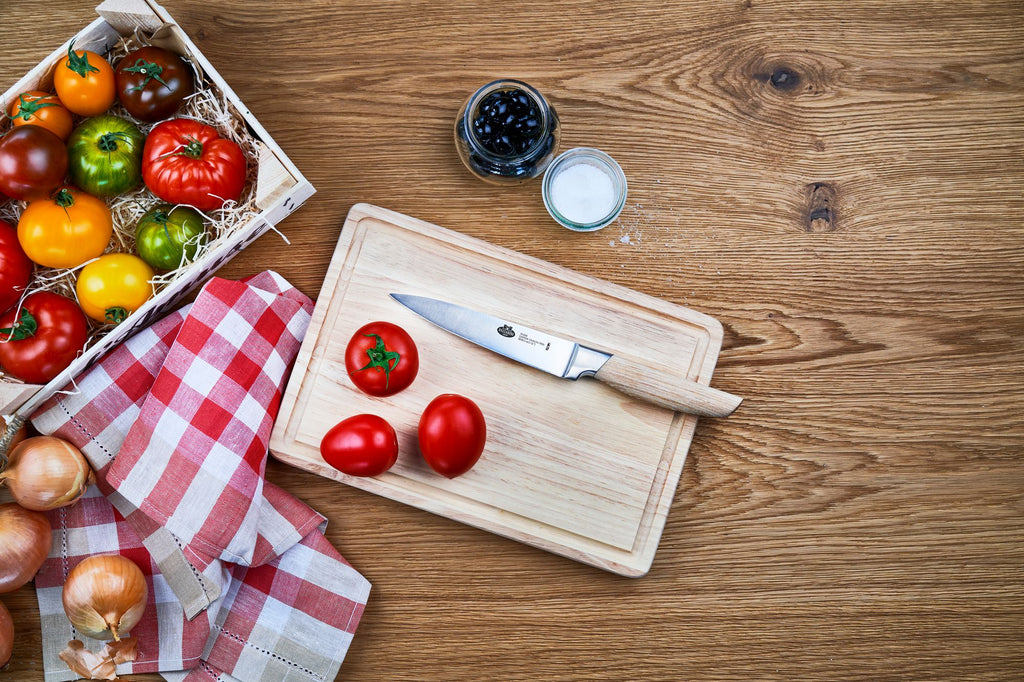For kitchen professionals, the sharpness of a knife is not just a matter of efficiency, but of safety and artistry. Knowing how to test German knife sharpness is crucial for any chef who values precision and performance in the kitchen. German knives, renowned for their craftsmanship and durability, are a staple in professional kitchens worldwide. In this comprehensive guide, we will delve into various techniques that will help you assess the sharpness of your German knives and maintain their edge for optimal performance.

The Importance of a Sharp Knife
A sharp knife is essential for more than just cutting; it enhances safety, ensures clean cuts, and preserves the integrity of the ingredients. A dull knife requires more force, increasing the likelihood of slipping and causing injury. Moreover, sharp knives maintain the texture and freshness of food, making them indispensable in professional settings. Understanding the importance of keeping your knives sharp is the first step in mastering your culinary craft.
Techniques to Test Knife Sharpness
There are several methods to test the sharpness of your German knife. These techniques are simple yet effective in providing a clear indication of your blades condition.
The Paper Test
One of the most popular methods is the paper test. Simply hold a piece of paper vertically and slice through it with your knife. A sharp knife will cut through the paper smoothly and effortlessly. If the knife snags or tears the paper, it may need sharpening. This test is a quick and easy way to gauge sharpness without any special equipment.
The Tomato Test
Another effective method is the tomato test. Tomatoes have delicate skins that require a finely honed edge to slice through cleanly. Attempt to slice through a tomato without applying pressure. A sharp knife will glide through, while a dull knife will squash the fruit. This test not only assesses sharpness but also demonstrates the knifes ability to handle delicate ingredients.
The Fingernail Test
This technique involves gently resting the knife edge on your fingernail at a slight angle. A sharp knife will catch on the nail, while a dull knife will slide off. While effective, this test should be performed with caution to avoid injury. It is a favorite among professionals for its simplicity and quick results.
Maintaining the Edge of Your German Knife
Once youve tested your knife and determined its sharpness, maintaining the edge is the next crucial step. Regular honing and periodic sharpening will keep your knife in top condition. Using a honing steel before each use realigns the blade, preserving its sharpness. For sharpening, a whetstone or professional sharpening service is recommended to restore the edge.
Understanding the design and materials of German knives can also aid in maintenance. For more insights, check out German Knife Bolster Design for detailed information on how these features affect performance and care.
Choosing the Right German Knife
Not all knives are created equal, and choosing the right German knife can significantly impact your culinary experience. Factors such as the type of steel, handle design, and blade shape all play a role in the knifes performance. For a deeper understanding of German vs. other knife types, visit German vs. Japanese Chef's Knives.
When selecting a knife, consider your specific needs and preferences. A well-chosen knife will not only enhance your cooking but also reduce the frequency of sharpening and maintenance.

FAQs
How often should I sharpen my German knife?
The frequency of sharpening depends on usage. For professional chefs using their knives daily, sharpening every few months is recommended. Regular honing will extend the time between sharpenings.
Can I use a knife sharpener instead of a whetstone?
While electric sharpeners are convenient, they can wear down the blade faster. A whetstone offers more control and precision, making it the preferred choice for many professionals.
How do I know when my knife needs sharpening?
If your knife struggles with the paper or tomato test, its time to sharpen it. Regularly testing your knifes sharpness will help you maintain its performance.
For more tips on knife care, explore our article on Best German Knife Set which provides insights on maintaining quality and longevity.
In conclusion, knowing how to test German knife sharpness is a skill that every kitchen professional should master. By regularly testing and maintaining your knives, you ensure safety, efficiency, and the highest quality in your culinary creations.


























